I just read Ben Stein's Father's Day column in the New York Times. While sitting around watching the cold North East rain on the first day of a short Summer, you can ponder exactly why it is that AIG, CITIGROUP, BAC and all the other corporate welfare queens are too big to fail (TBTF) and why the culprits are not being held accountable.
I am posting the column in its entirety.
DAD's REMINDERS NEVER GROW OLD
Ben Stein
IT’S Father’s Day, and I’ve been trying to think what my father — keenly missed every hour of every day of these 10 years since he died — would have said about what’s going on in the economy and what it means to Americans as investors.
Let me start with the basement of my home in Malibu. It is filled to the brim with file cabinets. In those cabinets are letters from Richard M. Nixon, love notes from high school heartthrobs and, most of all, a mass of material from my primary life work — the investigation of the Drexel Burnham Lambert-Michael Milken junk-bond scheme. That colossal machination worked because Drexel and its colleagues were able for a while to deny the real default rate of the bonds.
By persuading the markets that the bonds defaulted at a rate substantially less than the real rate, the sellers of the junk could demand and receive a higher price for several years. When the real default rate became known, as it inevitably did, the bonds collapsed in value.
This dragged down many savings and loan associations, insurance companies and other entities that held these junk bonds. And this in turn had some effect in causing the recession of the early 1990s, although certainly not the dominant effect.
Saying a bond is worth more than it is — this has been a problem in financial markets for some time. It was a huge issue in the 1920s (remember that Jay Gatsby dealt in bad bonds), and it is a big problem now.
The subprime crisis was essentially the old junk-bond scam on supersteroids, with nuclear weapons thrown in.
Collateralized mortgage obligation bonds were sold as having far lower risk of default than was really true for the subprime mortgages within them. This was bad enough. But those bonds were also booby-trapped by being attached to credit-default swaps, like a Viet Cong trap in Quang Tri province in 1971.
Once the C.M.O. bomb was detonated, its connection to the staggeringly potent credit-default swaps blew holes in immense entities like A.I.G. and took down Lehman Brothers.
In essence, because of the hugely incorrect estimates of how likely defaults were in a very large asset class owned by the finance sector, the reserves that the sector took for defaults were too small. That meant the earnings of this sector were staggeringly unrealistic and inflated. When these losses were taken, a panic set in and we are still in it: we have badly shaken financial entities and in many cases an extreme hesitation to lend has developed.
Now, what does this have to do with Father’s Day?
Only that this kind of thing happens again and again where Wall Street is concerned, as my father, Herbert Stein, the sensible and witty economist, always reminded me. If Wall Streeters can fudge numbers and get very rich from that fudging, some may do it — and ordinary Americans will see their hard-earned money disappear.
And as my father used to say, Wall Street makes itself seem indispensable, so it is never really punished.
Since late 2007, a stupendous amount of Americans’ savings has disappeared as prices of stocks and real estate have collapsed. This means that money you and I worked for, and money our fathers worked for and left to us, has vanished, along with some of our hope for a peaceful and serene old age. Again, the responsible parties are sitting pretty.
What do we do about it?
As individual investors, we undoubtedly should hold more cash and short-term Treasuries. We should be more leery of stocks and real estate. It’s true that we might miss out on big upward moves in stocks and real estate — and those moves can be humbling. Nevertheless, we have to be more cautious.
It’s Father’s Day, and some of us have to remember that we are the daddies now. That means that if we aren’t cautious, there will be no one there to bail us out except for Daddy Obama, and then only along the margins.
It’s Father’s Day, and, unfortunately, it’s time to remember that there’s a sucker born every minute, and that plenty of sharp operators are ready — sometimes wearing yellow suspenders with ducks on them and smiling.
It’s Father’s Day, and I can well imagine my father sympathizing with my losses and saying my grandmother’s favorite line: “Don’t worry about it — you’ll do it again.” And so we do, time after time.
Man is divided into predator and prey, and there is some of both in each of us. When our fathers are not there to protect us, we can get into trouble.
Subscribe to:
Post Comments (Atom)








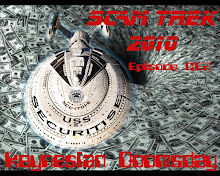





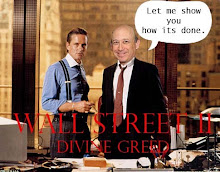



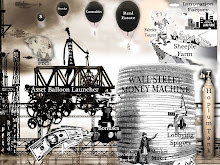
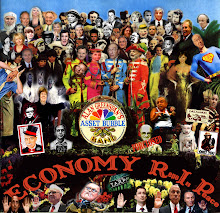



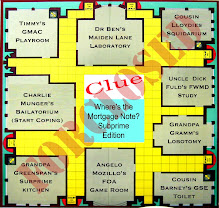





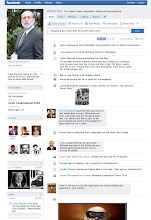
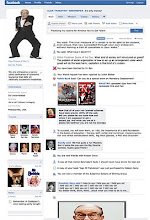
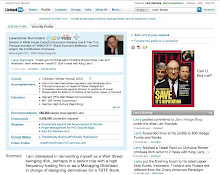




.jpg)



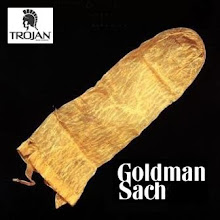








No comments:
Post a Comment